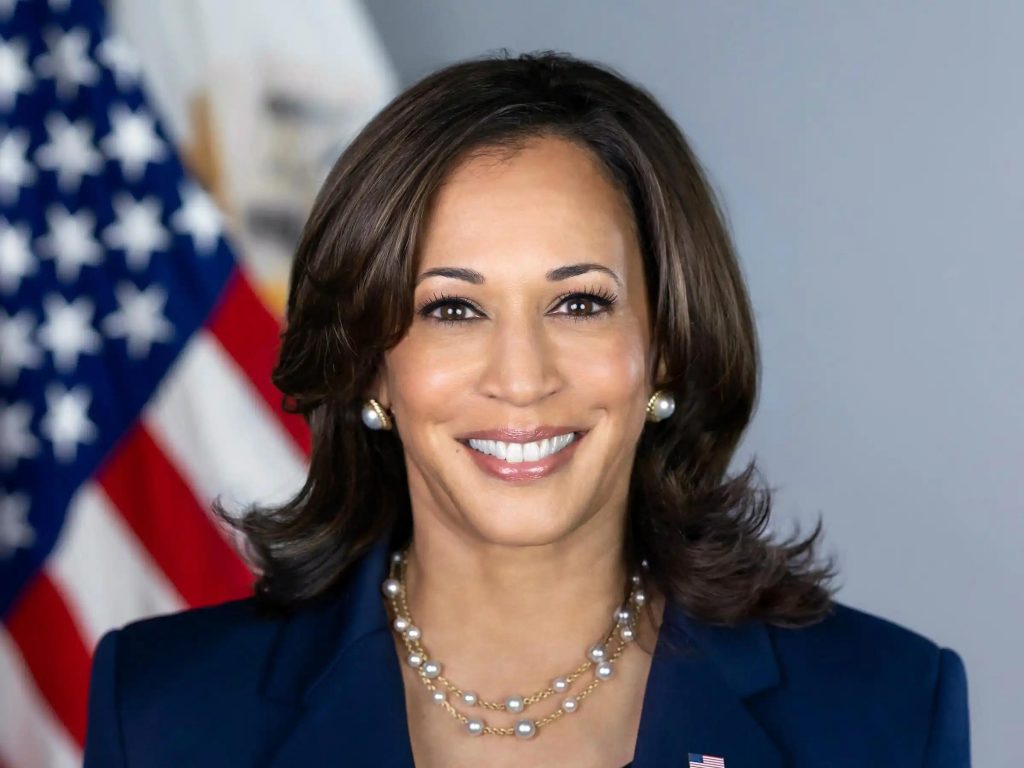Can Kamala Harris Win Wisconsin?
State Democratic chair explains why Mandela Barnes lost and Harris can win.

Vice President Kamala Harris. Photo by White House.
New York Times columnist and podcaster Ezra Klein might be the wonkiest of wonks and skippable for most readers, but his lo-o-ong interview on Friday with Wisconsin Democratic Party Chair Ben Wikler included some fascinating insights into how politics works in this state. Wikler is a master at getting national media attention and Klein is clearly a fan, calling the Wisconsin operative “absolutely one of the most effective” party chairs in the nation.
Indeed, Wikler has been praised even by Republicans, and his leadership will be one of the keys to whether Donald Trump or Kamala Harris carry Wisconsin, which in turn could well decide the national election. So attention must be paid to Wikler, who offered some instructive insider takes on current and past elections in this state. They included:
The unique feeling at the West Allis Central High School auditorium last week for the speech by Harris: “there was this just sense of joy and hope and optimism that felt so unlike the sense of dread that people have had in the pit of their stomach since 2015. Really, it felt like something new,” Wikler noted. “And it feels like what we’re about to see unfold across the country.”
How Harris was able to gain so much support so quickly after President Joe Biden withdrew from the 2024 race: “She has been building relationships across the country. She’s been working closely with Democratic and progressive leaders and activists, union leaders, elected officials all over the country … She was in my office at the Democratic Party of Wisconsin earlier this year and met the whole team, people filing through and meeting her individually. She’s been doing this work in a way that I think the country hadn’t quite realized, in a way that made her the totally clear choice as our nominee.”
The impact of Harris on fundraising: “In the last 48 hours at the Democratic Party of Wisconsin, we’ve had a flood. We’ve had more than $250,000 just float in. People have been — who I’ve left messages for the last year have now been sending me texts back that they just contributed $500, $5,000, people making bigger contributions than they thought. And anecdotally, talking to state legislative candidates already, it is a new day for them too.”
Perhaps the most interesting part of the interview involves the likely tactics of Trump’s campaign manager Chris LaCivita, who previously ran the successful attack ads against Democratic challenger Mandela Barnes, who lost a very close election to Republican incumbent U.S. Senator Ron Johnson. “LaCivita’s attack line on Barnes was different, ‘dangerous,’” Klein noted. “These were very Willie Horton-like ads, very racially coded. They darkened his skin with the filters they were using in the ads… Republicans have already started using ‘dangerously liberal,’ which is quite similar, as their line on Harris. Talk me through… the Barnes-Johnson race and its lessons for Democrats now.”
Barnes came out of Democratic primary ahead of Johnson, Wikler recalled. And then LaCivita and allied super PACs “put in $29 million to smear Mandela… they were outspending the pro-Mandela, anti-Johnson side in some media markets in some weeks by 4 to 1. People were seeing attack after attack after attack.”
But Republicans have often used similar attacks in this state and have been defeated, Wikler added, and the Barnes campaign knew what they needed to do in response. “One is responding to the attack head on and deflating it. The second was laying out who Mandela Barnes is and what he wants to do, what he’s for. And the third is being on offense.” But the campaign had spent heavily to win the primary and didn’t have enough money to do all that. “Groups had not yet clicked into gear to provide outside support. And so there was this massive imbalance, and people were hearing surround sound with the most vicious attacks without hearing the combination of defense, self-definition and offense.”
In the final stages of the campaign, money started flowing in from liberal groups and Barnes “started gaining. He went from a significant deficit in the polls,” Wikler noted. “He was gaining about a point a week. And he ran out of weeks. He wound up losing by 1 point. But that election illustrates exactly why [the November presidential election] is a winnable race.. of what a fully-funded, resourced and supported campaign can do.”
Klein asked Wikler to respond to an attack ad that has already run against Harris, tying her to the unpopular Biden administration and “a border invasion, runaway inflation, the American dream dead… Kamala owns this failed record.”
“That feels like an ad crafted for a Fox News audience that’s been following the narratives in the MAGA cinematic universe,” Wikler observed. “I don’t think that moves normie voters. I think for people that don’t live, sleep, eat and breathe this stuff, it’s very clear that Kamala Harris and Joe Biden are two separate people… And if people are frustrated with the way things have been going, and they want change, Kamala Harris is a change candidate.”
As to whether Trump’s pick of JD Vance as his running mate has reinforced the idea of Trump being “weird,” an attack line some Democrats are now using, Wikler offered this answer: “I think people should Google Groyper. G-R-O-Y-P-E-R. Bordering on alt right online provocateur universe… Often, you’ll see Trump post these things on Truth Social that come from the far, far right ultra mega extremist fever swamps. And some of the things that Vance talks about and the ideas that he puts forward, they come from that same fringe.
That version of Trump can never win a majority in this country. Cannot win a majority in Wisconsin. The Trump and the JD Vance that comes and talks about trade and talks about factories closing, that has a certain populist resonance. But this kind of seething hatred and fury, that does not appeal to people.”
Finally, Wikler talked about how Harris may bring people to the polls who didn’t want to vote for either Trump or Biden. “If you look at the polling just recently in Wisconsin, there was a public poll by YouGov that found that Tammy Baldwin had 50 percent support. Eric Hovde, her Republican opponent, had 43 percent support. Trump had 43 percent support. Biden… was at 38 percent….Trump and Eric Hovde had exactly the same level of support in Wisconsin. It’s that there were a whole bunch of people who were not sure if they would vote in the presidential election. And they were sure that they would support Tammy, if they did vote. And I think that changes now.
“So much of what was happening was people who felt frustrated that they were seeing a rematch of a choice that they’d had to make before. They’re fed up with things. They want to change, and they didn’t feel like they had a way to express that through their votes. And now, they do.”
If you think stories like this are important, become a member of Urban Milwaukee and help support real, independent journalism. Plus you get some cool added benefits.




















Can’t wait for Harris to win the Presidency! A breath of fresh air and enthusiasm to move our country forward from these lies and negativity. We will finally put that lunatic,34 count convicted demented racist to bed. He might just combust internally that day. What a sight to see.
Fascinating and timely story, Bruce. I do not in the first ant-Kamala ad I saw they put a filter on her appearance and a paus in her delivery that can only mean to the Fox viewer that she was lying. As good as Kamala’s early campaign has been, don’t overlook Biden. There were disturbing questions about why moving in the right direction for most voters didn’t translate into better poll numbers. Kamala sure lifted that veil over Biden support.
Why do we not talk about Milwaukee and CHOICE??? Just a little honesty might go a long way Data Wonk should compare Obama’s numbers to Hillary’s and Barnes’s numbers in Milwaukee and across the State That will tell a tale Always said that at least in Wisconsin Hillary’s campaign slogan should have been If you voted for Obama Vote for Hillary